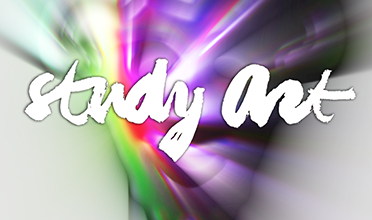Autor: mikulicova
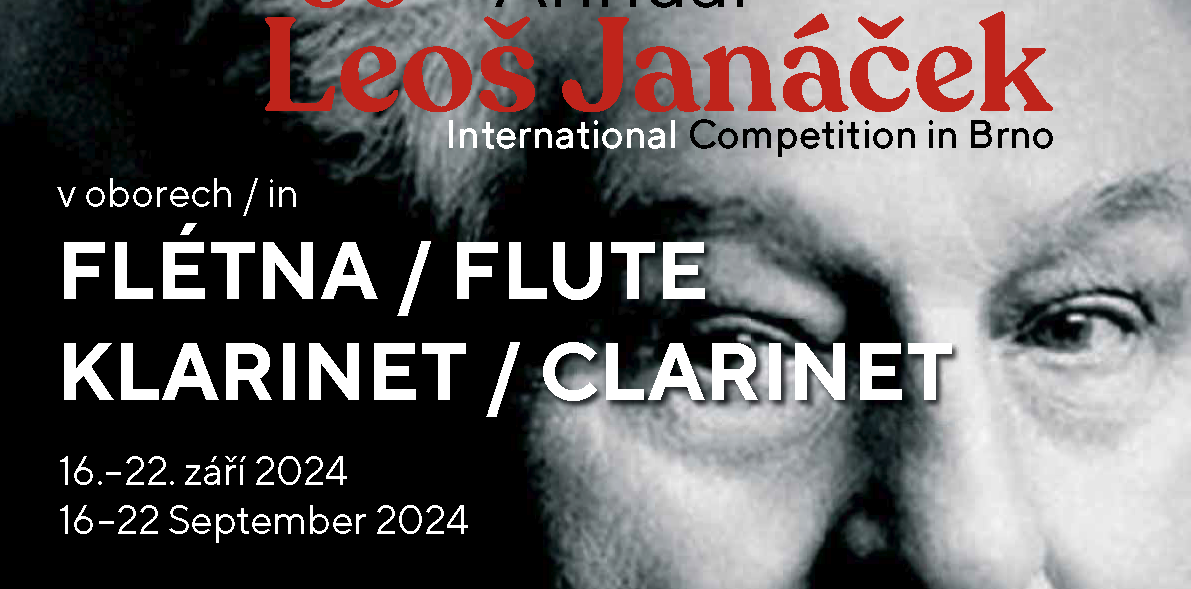
30th Annual Leoš Janáček International Competition in Brno
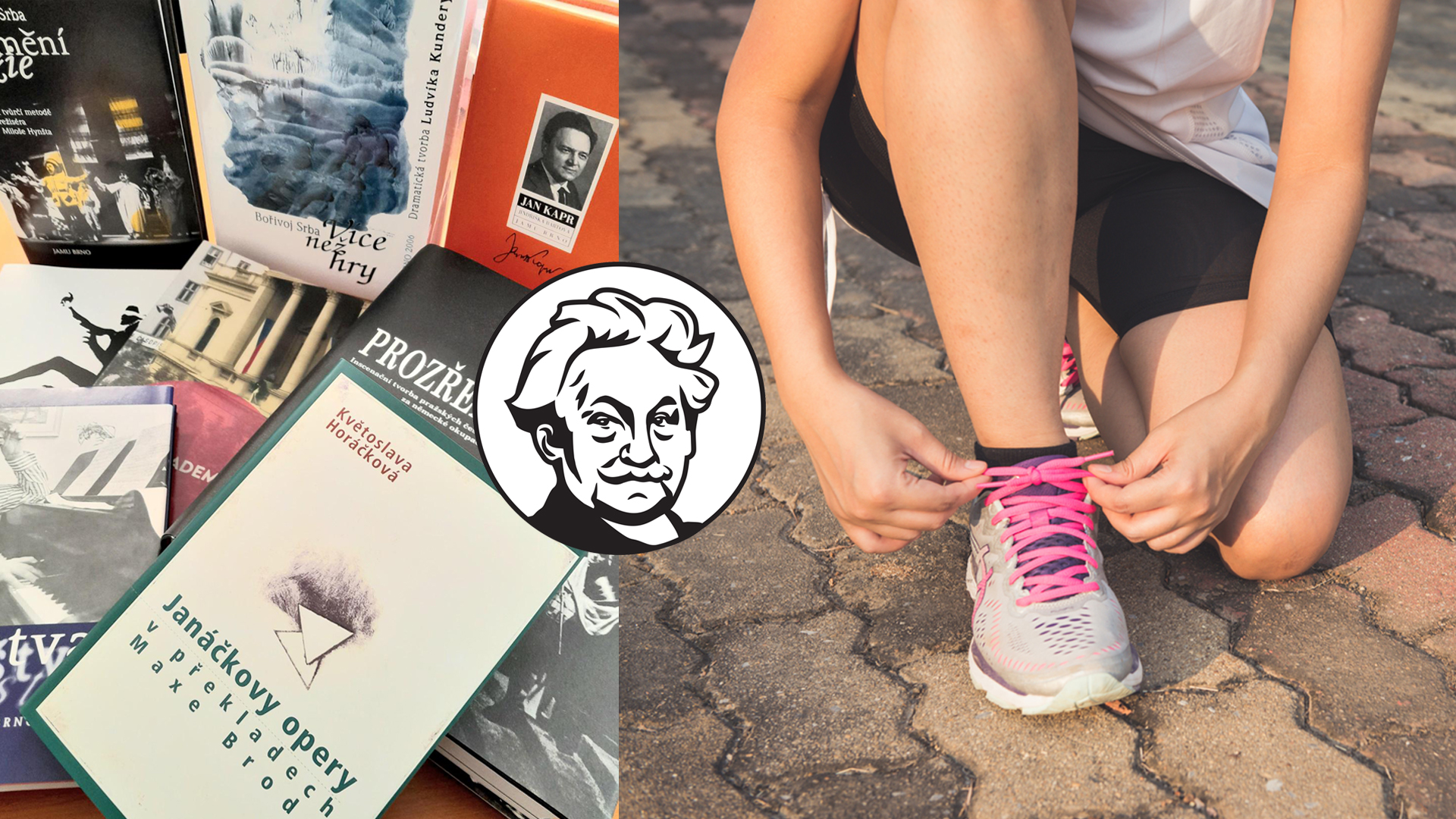
JAMU will be part of the European Sustainable Development Week and will prepare two events
This year, JAMU will participate in the European Week for Sustainable Development for the first time ever in connection with its participation in the CRP Unilead programme (Ministry of Education and Science). Most of the Czech public universities are participating in this event and will prepare several activities for students, staff and the general public during the week of September (20-26 September).
There will be various events and lectures on sustainability – canteens will prepare vegetarian meals, students will prepare swaps or exchanges, and films will be shown. Due to the later start of the semester JAMU will schedule two of its events during October.
The first will be JAMU’s Sustainable Book Swap, which will take place at both faculties from Oct. 4-8. On the ground floor of the faculties will be created a place where people can exchange (swap) books with each other – thematically related to the subjects of study, JAMU’s activities and general musical or dramatic topics.
This will be followed by the JAMU Autumn Run (planned for 12 October from 16:00 in Brno’s Kamenná Kolonia), which will be not only a team-building experience, but will also encourage the academic community to enjoy a pleasant and healthful movement (run, walk). The participants will be able to carry over this beneficial and sustainable habit for travelling to faculties, the Rector’s Office or other parts of the Academy. It will also include an after-party with a barbecue and a concert by students of the Faculty of Music. Students, staff and teachers of JAMU are invited to this afternoon in the charming surroundings of the Brno Kamenka.
We will keep you informed about both events.
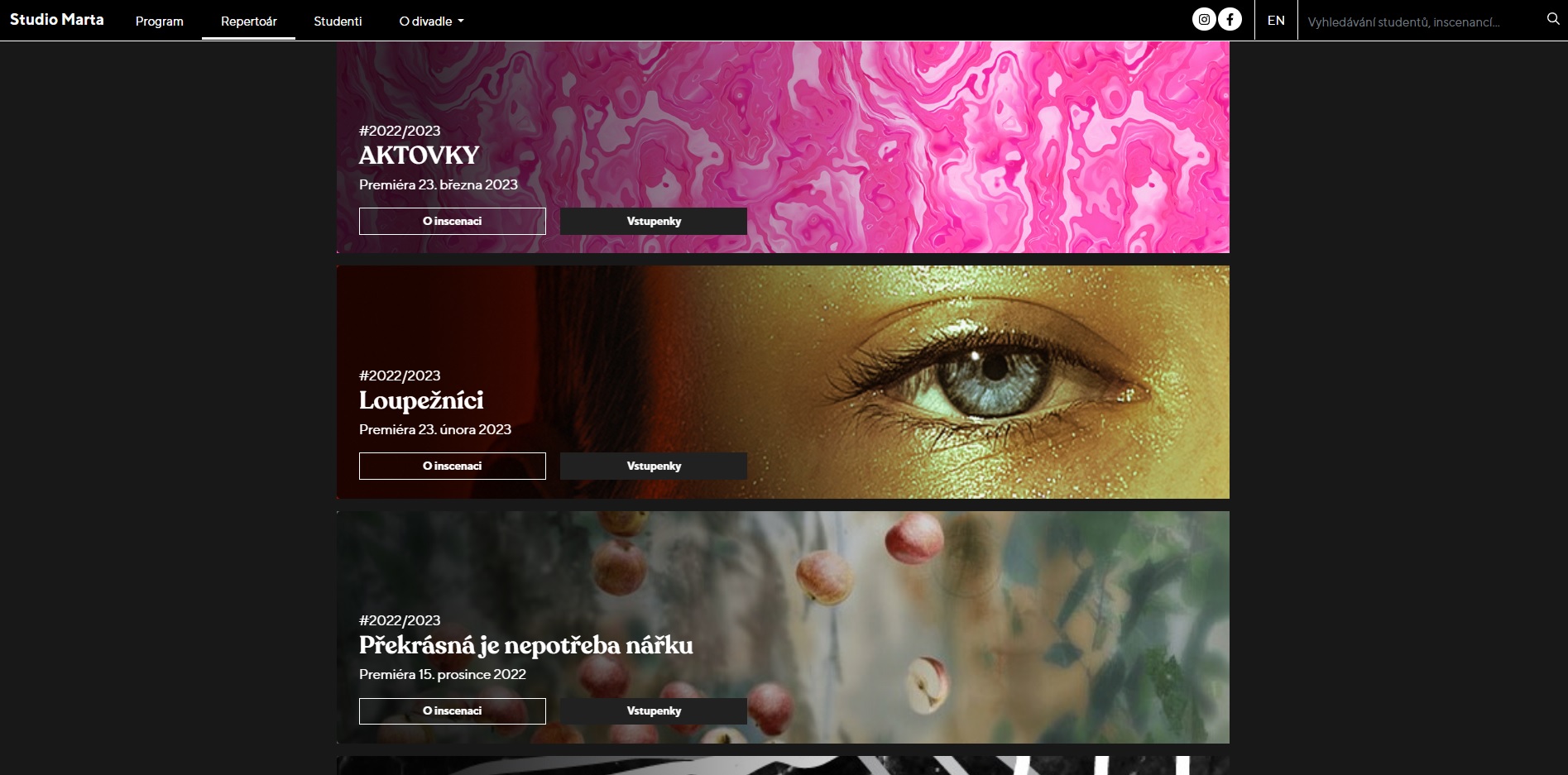
Orlí Theatre and Studio Marta launch the new websites
Both websites of our theatres – Theatre in Orlí Street and Studio Marta, have been given a brand new look. You can find them at the same addresses, but with some improvements and in a new visual form at Divadlo in Orlí Street and Studio Marta.
The aim was to make the site more contemporary, clearer and enriched with visual content – through photographs it promotes more our students, teachers and all the performances that the school puts on in the theatres.
The site is also now better connected to the GoOut portal, where tickets for individual performances are available online.
Enjoy the new web site!
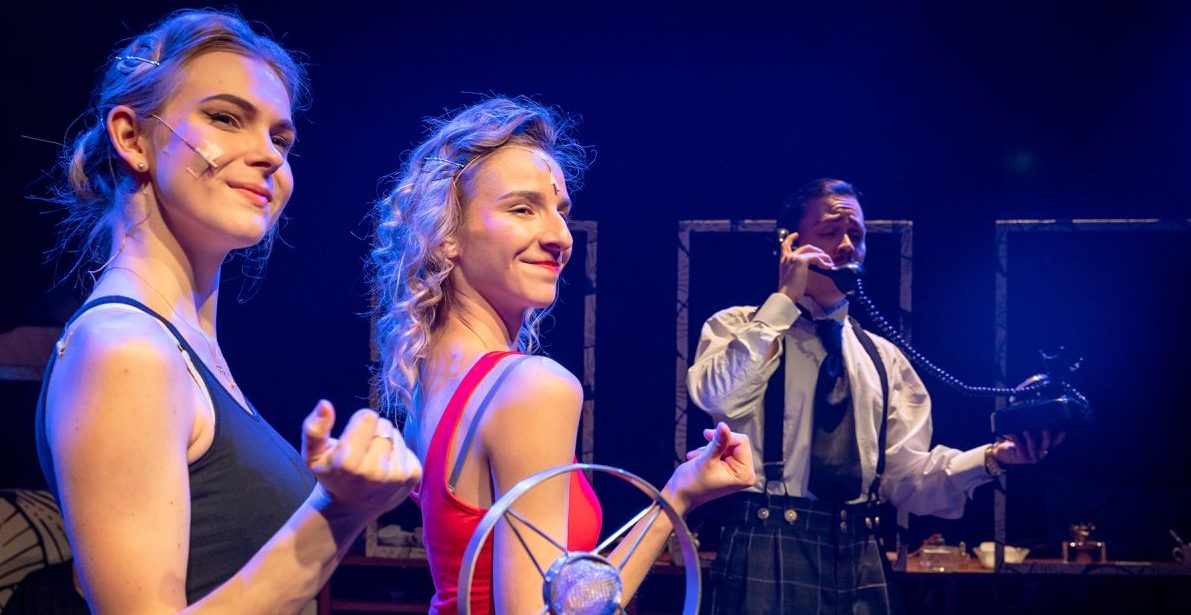
The new student musical SWING! takes the audience to a post-war swing café in Czechoslovakia
On Thursday, January 26, students of the graduating class of the Master’s degree program in Musical Acting at JAMU presented a new production called „SWING! By the rhythm you will know us“. The musical takes the audience to the Czechoslovak post-war music café Černá perla, where American jazz and swing is played.
The story follows the fate of its operation from the perspective of a trio of female singers, Lily, Rosalie and Violeta, for whom performing on stage, swing music and men are a major passion in their lives. However, the swing enthusiasm is disrupted by the events surrounding the February 1948 coup and the incoming communist establishment, for whom American jazz and swing are ideological enemies that do not fit at all into the notion of „appropriate“ music for working class. In these difficult times, the three singers do not give up their dreams and their desire to find happiness.
Pavel Trtílek, the author of the theme and the script, who is also the dramaturge of the production and a teacher at JAMU, tells a story of love adventures, unexpected twists and turns, almost detective plots, accompanied by an unbridled rhythm, swing dance and two dozen famous swing songs, such as Girl Born to Rhythm, Crazy Day, My Love is Jazz, Swingers‘ Convention, Wandering in Rhythm, Telephone Fox, Recipe for Mood and many others.
The musical component of the musical will be performed live by a swing orchestra made up of students from the JAMU School of Music, ensuring the syncopated heartbeat of the production is right on track. The choreography of the show was assisted by swingers from the private Swing Wings dance school in Brno.
Michal Sopuch, a graduate of drama directing at the JAMU, who brings experience from the Scéna Theatre in Zlín and the Radost Theatre in Brno, and who has worked with Trtílek at the Polárka and Radost theatres.
The performance is over two hours long with a 20-minute intermission. The complete creative team and cast can be found HERE.
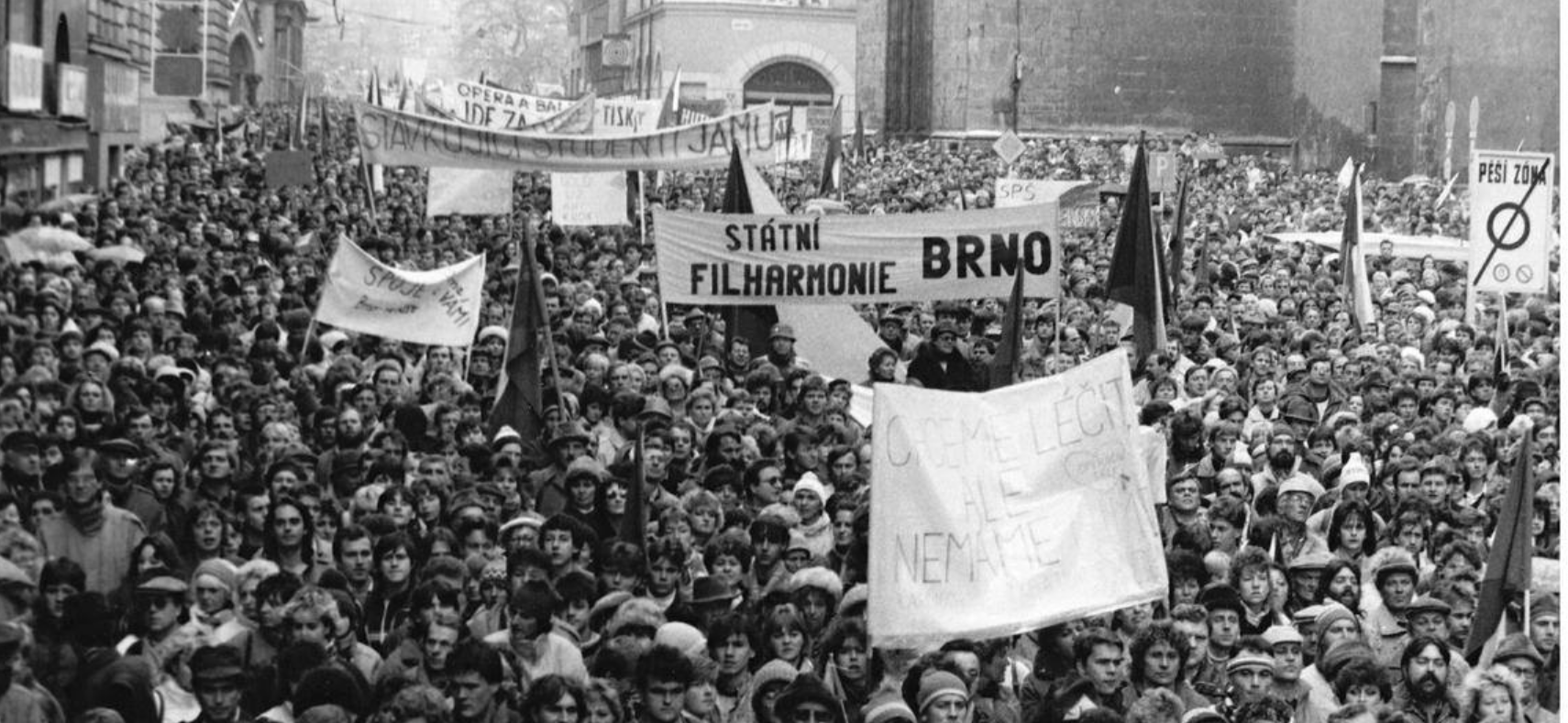
JAMU remembered November 17th through witnesses, recalling its message
Thirty-three years have passed since the first working meeting of the student strike committee at the Janáček Academy of Music and Performing Arts (JAMU) in Brno that was held in response to the crackdown by the security forces on the student march on 17 November 1989 at Prague’s Národní Street.
On Monday, 20 November, JAMU students joined a nationwide strike of students and theatre workers and actors. On Monday morning, František Derfler, a theatre artist, dissident and later professor at JAMU, spoke at the Faculty of Arts of the Jan Evangelista Purkyně University (UJEP) in Brno, currently known as the Masaryk University.
The key event of that day was an afternoon demonstration in a completely full Liberty Square, where students gathered alongside some teachers and other school staff. The JAMU was the first university in Brno to declare a strike together with the UJEP Faculty of Arts.
JAMU students then actively went out to smaller towns and municipalities to spread the word not only about the events on Prague’s Národní Street, but also to call for a reaction that would overthrow the totalitarian regime.
On the occasion of this year’s anniversary of „Velvet Revolution“, we selected three personalities from JAMU, its current rector Petr Michálek, his predecessor professor Petr Oslzlý, and associate professor Vít Spilka, asking them to recall the events of the revolution and to remind us of the importance of their message.
Petr Michálek, Rector of JAMU
You started studying at the JAMU Theatre Faculty six years after the November events and you were just 12 years old when the revolution happened. Did the memory of those events stick with you and did you feel that something special was happening?
I remember it quite vividly, although the atmosphere is not entirely tangible – what stuck with me the most was the feeling my parents had waiting for the news on TV. There was hope mixed with undoubted fear and uncertainty. It was such a strange concoction in our living room amidst the cigarette smoke.
How do you yourself perceive the significance of the November events in relation to running an institution such as the Janáček Academy of Music and Performing Arts?
I will be brief: Nothing is free. And most importantly: nothing lasts forever. We have been given the opportunity to care. To care for the society as a whole and for the micro-world called JAMU.
What message should we take from November 1989 for today?
We owe our freedom to the Velvet Revolution and we have forgotten that freedom comes with responsibility. That would probably be the correct answer if this were a test. I must admit that it gets to me how we sometimes opt for this default correct response. I sometimes wonder if we are sufficiently aware of what these words truly mean? There is a story behind those words. Individual fates. Dilemmas. Unknowns. So to answer once again, this time the way I truly feel: the Velvet Revolution gave us a story.
Petr Oslzlý, Rector Emeritus of JAMU
What comes to your mind when someone says 17 November 1989?
I have a whole “film” of memories of the events that began on 17 November 1989, which I have captured through a number of interviews and texts, the most important of which are included in my book Theatre for Democracy, published by the JAMU Publishing House. On Friday, 17 November 1989, we – i.e. Divadlo na provázku together with HaDivadlo – performed our joint stage magazine Rozrazil 1/88 – About Democracy in Prague at the Junior Club Na Chmelnici, and I have many vivid memories of this specific day. Ranging from the emergency regiment on its way to be deployed against the students, which we watched from the club’s windows – its members looked to us like they were jacked up on drugs – to the arrival of Roman Ráček, a then-student at the Faculty of Arts in Brno, who was at the front of the student march brutally attacked on Národní Street. We interrupted the performance and I, together with Břetislav Rychlík, brought him to the stage and had him tell his story in front of the shaken audience. I also remember the night of 17 November, we were staying at the Jan Opletal university dormitory, but we basically did not sleep at all because we were constantly on the phone with colleagues from other studio theatres and with students from DAMU and FAMU, preparing to launch the strike.
Were you involved in any way in the strike, demonstrations or revolutionary initiatives on behalf of JAMU during the autumn of 1989?
At that time I was connected with JAMU only through students of its large theatre department (as the faculty did not exist yet), who ignored the communists’ ban on attending our “suspicious” theatre. On Monday, November 20, after a morning sessions at Divadlo na provázku, where we were setting up a strike coordination centre for South Moravia together with HaDivadlo, I went to my alma mater, the Faculty of Arts, but on the way I stopped at the Comenius Square, which at the time housed the only seat of JAMU in what is today the Faculty of Music, and there I briefly met a group of students at the entrance. I think they were demanding entry because the school was closed by its management at the time…
What are your strongest memories of the events of those days? Either the good ones or those connected with the threats of the when it was not yet clear that the revolution would be “velvet”?
As I said, I have a lot of strong memories. On Saturday, in Junior Club Na Chmelnici, where we were to play at 4 p.m., we and HaDivadlo were the first two Czech theatres to go on strike, and I was the first to read the strike declaration at the stage. The building was surrounded by uniformed and undercover police officers who tried to prevent us from calling the strike. After the following three incredibly active days in Brno, I moved permanently to the Civic Forum coordination centre from Wednesday 22 November, seeing as I was its founding co-signatory. At first, the centre was located in the U Řečických Gallery and it was then moved to Laterna magica – then an underground theatre space at Národní Street. We had to realistically consider the possibility that the People’s Militias, the police or the army would intervene against us. On Friday, November 24, after the new Central Committee of the Communist Party of Czechoslovakia had been established following the fall of the old one in the evening, and it was clear that the totalitarian regime was not giving up, we were even called upon to go underground and were offered safe shelter. At that time Václav Havel asked us if there was anyone who did not expect this violent reaction from the regime, and when we all assured him that we were aware of such risk, he suggested that we stay in Laterna magica. We had hundreds of thousands of people on the streets supporting us, and to show our fear would send a negative signal. For me, the emotionally strongest experiences were, of course, the demonstrations of hundreds of thousands of people on Wenceslas Square, which we addressed from the balcony of the Melantrich Publishing House, and the demonstrations of millions of people on Letná Plain, which I actively participated in organising and “dramaturgically directing” in a small group around Václav Havel.
What do you see as the message of those events for the current generation of young students at JAMU and other universities?
The message of these events is, in my opinion, primarily ethical. Czech society, or at least its majority, which saw the communist regime as a violent and totalitarian establishment, was united by a desire for freedom and democracy. We have achieved both, but living in a free and democratic society has proved far more complex than the majority expected at the time. The message to today’s youth, then, is that freedom and democracy are not a permanent state of affairs, that both must be constantly defended against tendencies, forces and individuals whose political programmes and activities are undemocratic and pose a threat to the freedom of our society.
Students of JAMU should constantly keep in mind that the moral and professional heritage of the 1989 Velvet Revolution and the subsequent great activity of two men, Professors Josef Kovalčuk and Bořivoj Srba, and the first female rector of the free era, Professor Alena Štěpánková Veselá, enabled the establishment of the JAMU Theatre Faculty and fundamentally influenced the current free and democratic form of our Academy.
Vít Spilka, Associate Professor at the Wind Instruments Department, Faculty of Music
You took part in the Liberty Square demonstration on 20 November 1989 as a student of JAMU. How do you remember the strike and the related protests? What was the overall energy among the students then?
I remember that day quite vividly: on the morning of 20 November (Monday), I arrived at the building on Comenius Square and on the very door of the main entrance there was a declaration from the students of DAMU that they were going on strike. I went up to the first floor only to find Petr Veselý standing in front of the auditorium, then a student of drama direction, who told me the first information – all JAMU students were to meet in the auditorium at 10:00 a.m. A surprising number of us had gathered there, the auditorium was almost full, including several teachers. Jakub Špalek, a student of DAMU, gave a personal testimony about the events on Národní Street. The mood was quite thunderous, Špalek managed to portray the whole course of Friday’s events in a rather colourful way and it was clear to everyone at this moment that a major historical breakthrough was taking place. And the energy among the students? I remember mainly the fear I had that if this “does not work out” I would certainly be expelled as a member of the strike committee, both from the school and from the Brno Philharmonic, where I was already employed at that time. But otherwise, of course, there was great euphoria, excitement and uncertainty.
Was the demonstration more an act of protest and anger in response to the aggressive suppression of the student demonstration in Prague, or was it clear even then that everything possible had to be done to overturn the regime? How did you feel about that?
It was actually both – anger caused by the brutal crackdown on Národní Street and a feeling that the regime could no longer function in status quo, that at the very least the presidium of the Central Committee of the Communist Party of Czechoslovakia had to resign, which it did within a few days. But in reality, we were actually striving for a coup: on November 20, the Ten Demands of the Prague Universities were adopted, to which we added two more – the calling of free elections and the abolition of the constitutional article on the leading role of the Communist Party of Czechoslovakia in society. Then, the wheels of time started turning: at 13:00 a meeting of students of the Brno striking schools was held in the courtyard of the Faculty of Arts of Masaryk University (then still called Jan Evangelista Purkyně University) and the newly formed coordinating committee met. Our alma mater, together with the above-mentioned faculty, was the first school in Moravia to join the student strike.
What should the current JAMU appreciate about the initiative of those students, as well as the teachers and staff, who took joint action to oppose the regime at that time?
How the JAMU should respect the actors of those times is up to each individual. However, the key role of the artists, who had a significant influence on the rapid and successful course of the revolutionary events, could fill us with a certain pride. Basically, we should cherish that JAMU was not a mere by-stander, but played a key role, especially in the early days.
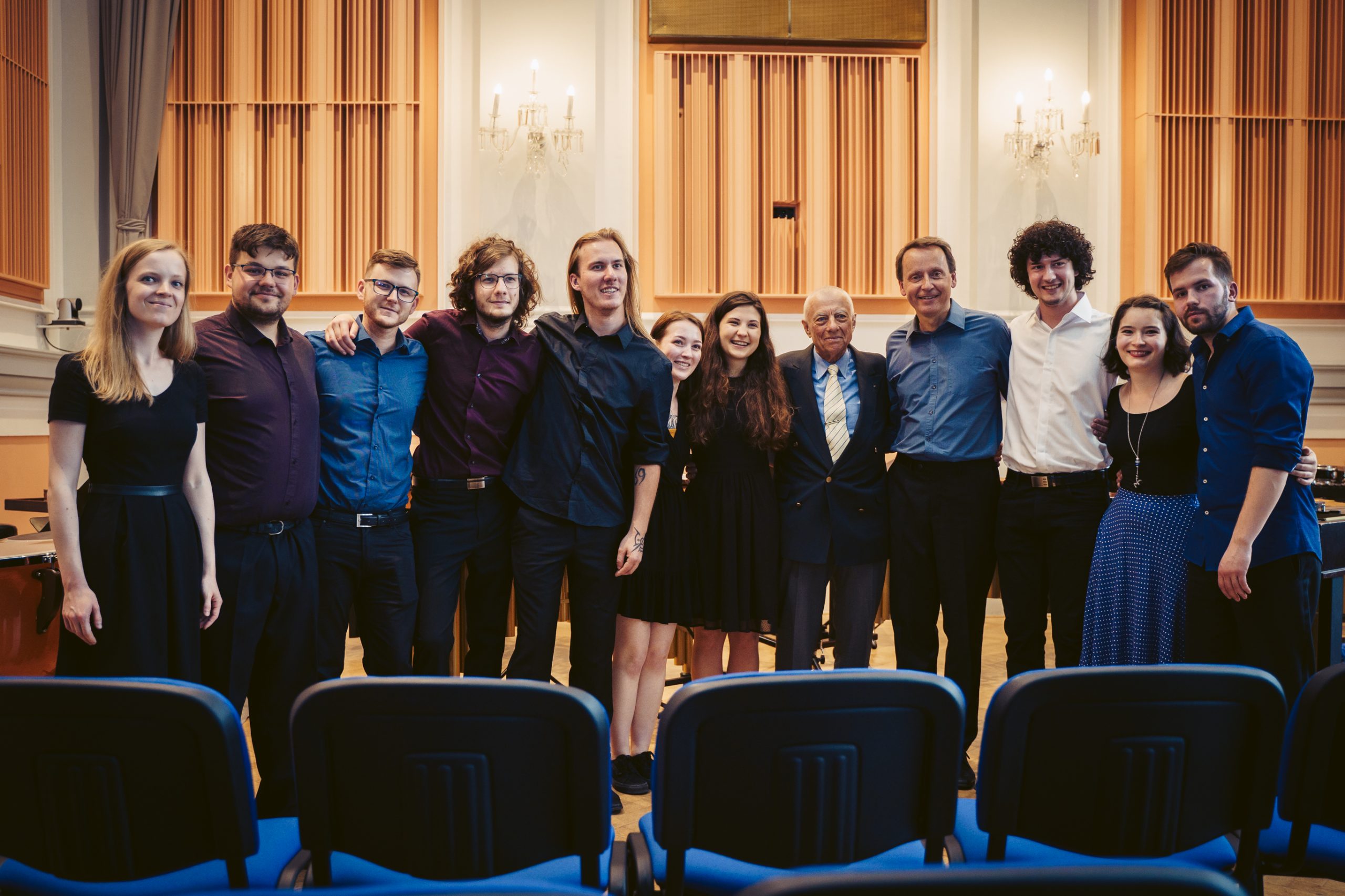
JAMU Percussion Ensemble played for the 75th anniversary of the Academy
The last concert to celebrate the 75th anniversary of the JAMU in this academic year took place in a completely full auditorium of the Faculty of Music. The festive evening was also dedicated to the 80th anniversary of the birth of František Vlk, emeritus teacher of the Department of Percussion Instruments and former leading timpanist of the Brno Philharmonic. The seventy-minute programme featured the JAMU Percussion Ensemble under the artistic direction of Prof. Martin Opršál. Due to the large percussion instruments, it was necessary to swap the auditorium with the stage, where the large percussion instruments would not fit and on which the audience was therefore seated. The ten percussionists were accompanied by the harpist Dominika Kvardová. At the end of the programme with works by Dmitri Shostakovich, Leoš Janáček, Sofia Gubajdulina, Anna Ignatowicz-Gliňská, the audience heard the world premiere of Rustling by Vit Zouhar, who wrote it especially for the JAMU Percussion Ensemble. In the new reconstructed auditorium of the JAMU Faculty of Music, three marimbas, three vibraphones, seven timpani, chimes, large and small drums, tambourine, castanets and the harp were played.
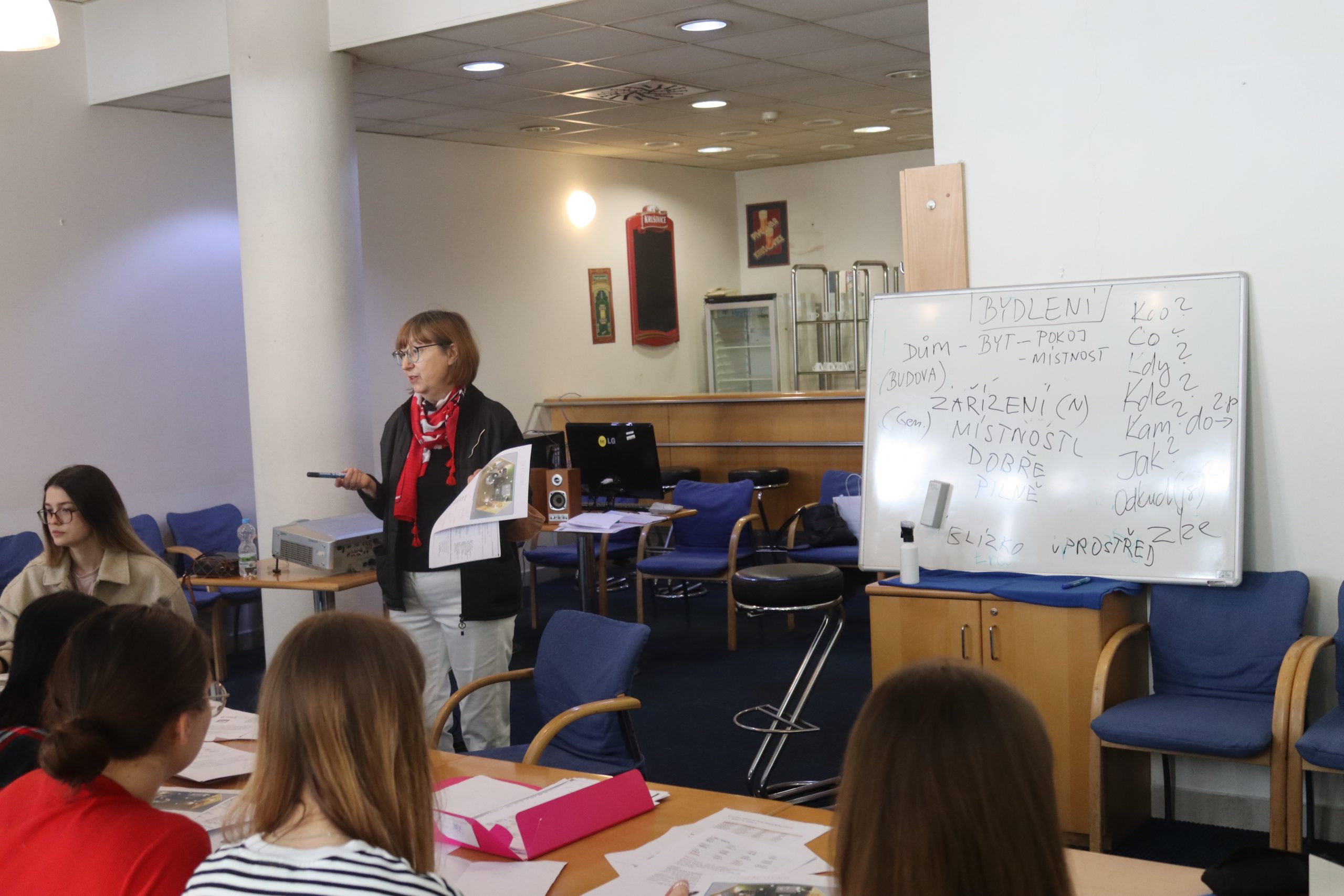
JAMU accepts students from Ukraine, teaches them Czech and opens a transparent account
Thirteen Ukrainian students fleeing the war are currently studying at both faculties of the Academy in Brno. However, the numbers may be even higher. JAMU on top of the initiative of the Dean of the Theatre Faculty doc. Mgr. Petr Francán has set up a transparent account for the support of Ukrainian students as one of the forms of support for the studies of existing students from Ukraine and students. The funds raised are, according to the school’s rector MgA. Petr Michálek are intended for direct scholarship support of these students, as well as Ukrainian teachers and the overall financial support of the teaching of these students, for whom the school has also set up Czech language classes three times a week.
The Faculty of Theatre of JAMU decided to organize short-term mobility for one semester due to language complications. „We created a group of teachers who prepared a study programme and we announced an admission procedure. The criterion for admission is that the applicant must be a student of a Ukrainian university and that his/her study focus is related to our study programmes,“ said the Vice Dean for Studies, Assoc. Ing. David Strnad. He adds that currently the faculty has accepted nine Ukrainian students into the above-described form of study, among whom are mainly young actors, directors, choreographers or stage designers. Three applications submitted are in the process of being implemented and assessed. „The maximum capacity we are able to teach meaningfully and with quality is set at fourteen students,“ said Vice Dean Strnad.
The Faculty of Music is also able to accept a similar number of applicants, with four students now enrolled so far in piano, guitar, viola and opera singing. „Due to the selectivity and extreme individual care for our charges, we can accept a total of fifteen students,“ added the Dean of the Faculty of Music of JAMU, Prof. Barbara Maria Willi, Ph.D. Here they also accept Ukrainian students who had to leave their music universities for short-term internships and, upon successful completion of the talent test, also for regular studies. „We also offer students the opportunity to go in the direction of researching Ukrainian musical culture in their student qualifying papers,“ said Dean Willi.
The two faculties cooperate in teaching Czech to Ukrainian students. The course for a dozen interested students is intensive, i.e. three times two hours a week. And the main goal of the two teachers is to make the scholarship holders from Ukraine feel comfortable. „We don’t want it to be boring. We also try to inform about Czech realities and life in our society. My colleague baked tradicional Easter cake, and I even try to sing and recite Czech nursery rhymes – a regular Czech accent is difficult for Ukrainian students, because their language is typically accented with movement. And when the weather improves, we will hit the streets to get to know Brno and with it Czech in everyday practice,“ said one of the teachers, the head of the Department of Foreign Languages doc. PhDr. Květoslava Horáčková, Ph.D.
Both faculties are preparing a study programme for these students for the holidays, the semester for them should end on 31 August 2022. Each of these students has designated patrons from among JAMU students who help with everyday communication, barriers, information, etc. A meeting with a psychologist has been organized by Student Activities for these patrons so that they are prepared for the stresses and potential crisis situations that could theoretically arise. For example, Czech students from the Theatre and Education Department have been helping at the Brno Exhibition Centre since the very establishment of the Help Centre for Ukrainian refugees. They have been working as volunteers in the children’s corners, of which there were three during their last visit. The number of corners often changes according to the workload of the centre. „The main aim of these play spaces is to offer the children a break from their current situation. At the same time, they can provide parents with a space to process the necessary documents,“ added volunteer and third-year student Klára Kulhavá. Therefore, in difficult communication with children, students deliberately choose games and activities that do not require verbal communication. Popular activities include bead stringing, drawing or bilingual memory game. The equipment of the corners is constantly growing. At the moment, each corner includes a TV with a rich selection of fairy tales in Ukrainian.
A completely concrete form of support is also the establishment of a transparent account where all interested people can contribute.
The account is kept at the Brno branch of Komerční banka: the number is 123-5466850237/0100
Easy access to the account and a preview of it can also be found at this link from the school website: https://www.jamu.cz/jamu-zridila-transparentni-ucet-na-podporu-ukrajinskych-studentu/
Mgr. Luboš Mareček, Ph.D.
FOTO: Luboš Mareček
